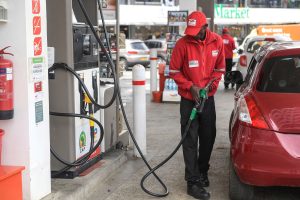The world is set to feel the heat of the ongoing war between Israel and Palestinian Islamist group Hamas following a sudden increase in fuel prices.
According to Reuters, oil prices were up more than USD 3 a barrel in Asian trade.
Brent crude rose USD 3.10, or 3.67 per cent, to USD 87.68 a barrel by 0400 GMT, while U.S. West Texas Intermediate crude was at USD 86.05 a barrel, up USD 3.26, or 3.94 per cent.
Both benchmarks had jumped more than USD 4 a barrel earlier, before easing slightly.
“The risk premium on oil is rising due to the prospect of a wider conflagration that could spread to nearby major oil-producing nations such as Iran and Saudi Arabia,” energy analyst Saul Kavonic told Reuters.

The extent of the war is likely to affect other nations including Kenya which depends on oil imports.
Currently, a liter of petrol retails at over Ksh200 in the country following the doubling of fuel value-added tax and other regimes.
Following the review announced by the Energy and Petroleum Regulatory Authority (EPRA), Kenya Kwanza officials led by Deputy President Rigathi Gachagua attributed the rise to the global fuel price surge.
However, Gachagua assured Kenyans that Ruto’s government would work to stabilize the prices.
Energy Cabinet Secretary Davis Chirchir had earlier claimed that there was nothing the government could do about the rise in fuel prices.
Appearing before the National Assembly’s Energy Committee, Chirchir cited global factors as a significant contributor to the soaring fuel prices.
“We are dealing with sovereign governments as suppliers of these products. We are likely going to harder times. There is nothing much we can do about it,” Chirchir stated.
His sentiments were supported by the then Trade Cabinet Secretary Moses Kuria and President William Ruto’s Economic Advisor, David Ndii.
It’s however not clear if the Kenya Kwanza administration had laid out plans to cushion Kenyans following the escalating war between Israel and Hamas.